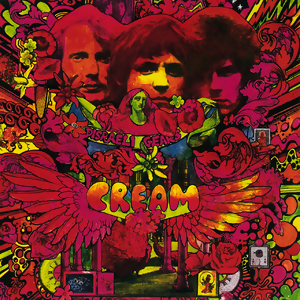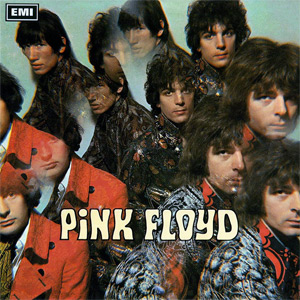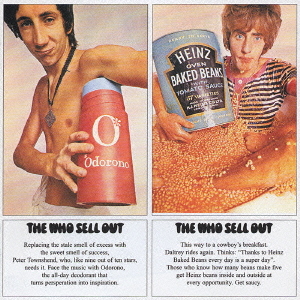By Dennis Hartley
(Originally posted on Digby’s Hullabaloo on October 7, 2017)

A long distance, directory assistance, area code 212 Say hey, A & R-this is mister rhythm and blues He said hello, and put me on hold To say the least the cat was cold He said don’t call us, child…we’ll call you.
-from “Don’t Call Us, We’ll Call You”, by Sugarloaf
In Hit Men, Fredric Dannen’s excellent 1990 book recounting the golden era of the major record label power brokers, the author writes:
Rock historians tend to romanticize the pioneers of the rock and roll industry. It is true that the three large labels of the fifties—RCA Victor, Decca, and Columbia, which CBS had bought in 1938—were slow to recognize the new music. […]
The pioneers deserve praise for their foresight but little for their integrity. Many of them were crooks. Their victims were usually poor blacks, the inventors of rock and roll, though whites did not fare much better. […]
The modern record industry, which derives half its revenues from rock, worships its early founders. It has already begun to induct men such as disc jockey and concert promoter Alan Freed into the Rock and Roll Hall of Fame. When veteran record men wax nostalgic about the fifties, they often speak of the great “characters” who populated the business.
One of the direct descendants of those “characters” (and also profiled in Dannen’s book) is legendary A & R man Clive Davis. Davis was president of Columbia Records from 1966-1973, and founder and president of Arista Records 1974-2000 (when he founded J Records). In 2000, he was inducted into the Rock and Roll Hall of Fame in the non-performer’s category. He was chairman and CEO of the RCA Music Group from 2002-2008; currently he is the chief creative officer of Sony Music Entertainment (at age 85).
Davis is also the subject of a new documentary, Clive Davis: The Soundtrack of Our Lives. You should know up front that Chris Perkel’s film was made with Davis’ full blessing and cooperation; so if you are looking for an expose of the cutthroat music business, you will be disappointed (for a more unvarnished portrait of Mr. Davis and his peers, I recommend Dannen’s book). Still, music fans should find it a worthwhile watch.
Putting the generally hagiographic tone of the film aside, the title’s “soundtrack of our lives” conceit is actually not too far off the mark. As is recounted in the film, the lawyer-turned-record company talent scout came roaring out of the gate by cannily raiding the embarrassment of new and exciting talent on display at the 1967 Monterey Pop Festival.
After watching Janis Joplin’s jaw-dropping performance at the festival, he immediately signed Big Brother and the Holding Company (good call!). Other notable artists who joined the Columbia roster under Davis’ tenure and mentorship: Santana, Laura Nyro, The Electric Flag, The Chambers Brothers, Chicago, Blood Sweat & Tears, Loggins & Messina, Aerosmith, Bruce Springsteen, Billy Joel, Pink Floyd, and Earth Wind and Fire.
Unfortunately, Davis ended up getting fired from CBS in the mid-70s for alleged misappropriation of company funds for personal use. Details of this period are glaringly glossed over in the film; we are only offered Davis’ contention that he was the sacrificial lamb in a company-wide payola scandal that he denies having any direct involvement in.
Arguably, this could have been the best thing that ever happened to him, as Davis dusted himself off and founded Arista Records shortly thereafter. While he didn’t necessarily “discover” every artist on the label, he did assemble an impressive lineup that would seem to affirm his “golden ear” for talent: Barry Manilow, Patti Smith, Lou Reed, Gil Scott-Heron, Eric Carmen, Air Supply, Ray Parker Jr., Carly Simon, The Grateful Dead, etc.
Davis has also displayed a talent for helping give long-established artists with waning sales a second wind in their careers; the film explores how he “reintroduced” Aretha Franklin, Dionne Warwick, The Grateful Dead and Santana to a new generation of fans.
Not surprisingly, a sizeable portion of the film is devoted to Davis’ most storied client relationship, which was with Whitney Houston. Under Davis’ mentorship, Houston became one of the biggest selling artists of all time. Their partnership was at once professional and paternal; Davis’ recollections of his attempts (too little too late) to help her overcome the struggles with addiction that led to her sadly untimely end are very personal and moving.
As I inferred, music fans will find the film absorbing (if not necessarily revelatory). I would have liked to have learned a little more about Davis’ “process” as a talent scout and an idol maker; maybe a few more anecdotes about working directly with specific artists (at times as a de facto producer in the studio) might have spiced things up. Still, as a study of what is literally a dying breed of “hit men”, this single should make the charts.
 19 artists go in the cage…only 5 come out.
19 artists go in the cage…only 5 come out.






 The Moody Blues– Days of Future Passed…Mellotrons R Us. Symphonic rock before anyone thought it was even possible. A thing of beauty. Best cuts: “Tuesday Afternoon” and “Nights in White Satin”.
The Moody Blues– Days of Future Passed…Mellotrons R Us. Symphonic rock before anyone thought it was even possible. A thing of beauty. Best cuts: “Tuesday Afternoon” and “Nights in White Satin”.






 1947-2016
1947-2016